Nicolle Amyotte graduated with her MA in Cultural Studies from the University of Winnipeg. Before pursuing an MA in Cultural Studies, Nicolle studied Journalism and Communications at Mount Royal University in Calgary, Alberta, and worked in the social services sector. Working with and learning about economic disparity is what motivated Nicolle to apply to graduate studies: her research interests pertain to social justice, equity and poverty reduction in a Canadian setting, as well as media influence in this realm. Ultimately, Nicolle aspires to affect policy related to social change with research and critical thinking skills developed at the University of Winnipeg.

Lindsey Bond is a lens-based artist, project facilitator and mother from Treaty 6, Edmonton, Alberta. Bond has worked in diverse communities across Canada and is currently based out of Winnipeg, Manitoba on Treaty 1 Territory. As Indigenous ally and accomplice, she focuses her time between creating and documenting socially-engaged art projects and working as the Photography Technician at the School of Art, University of Manitoba. Her projects often take shape through street-level photographs, video installations, and books that explore memory, re-contextualize daily movement and navigate pathways between Indigenous and non-Indigenous communities. Current projects include: investigating the shifting ground surrounding defunct rail-lines in Manitoba, and de-constructing the bridge as a metaphor for transformation. Most recently, Bond worked with Mentoring Artists for Women’s Art to project manage Resilience, a national billboard project. Please visit lindseybond.ca

Shannon Bell, a Canadian performance philosopher who lives and writes philosophy-in-action, is a Professor of Political Science at York University, Toronto, Canada https://www.yorku.ca/shanbell/ Her books include: Fast Feminism (2010), Reading, Writing and Rewriting the Prostitute Body (1994), Whore Carnival (1995), Bad Attitudes on Trial (co-authored; 1997, republished 2017); The Book of Radical General Semantics (co-edited; 2016), Subversive Itinerary: The Thought of Gad Horowitz (co-edited; 2013) and New Socialisms (co-edited; 2004). Bell is currently working on shooting theory––video-imaging philosophical concept such as Heidegger’s ‘stillness,’ Husserl’s ‘epoché,’ Bataille’s ‘waste’ and ‘expenditure,’ Weil’s ‘attention,’ Deleuze’s ‘deterritorialization,’ Virilio’s ‘vision machine’ and ‘accident,’ and Levinas’s ‘elemental.’ Her vimeo.com name is FastBodies.
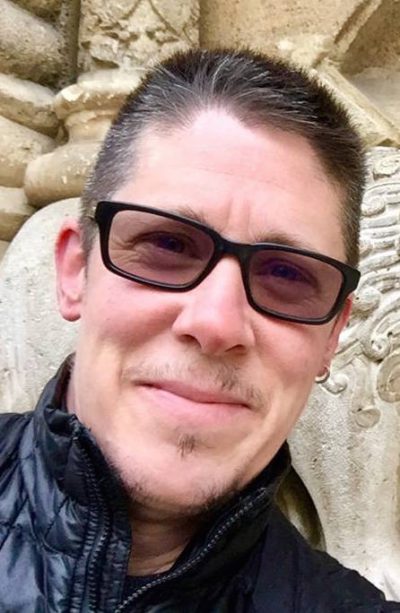
Dr. Jarvis Brownlie earned a PhD in Canadian Aboriginal History from the University of Toronto and is a Professor in the History Department at the University of Manitoba. He is the author of A Fatherly Eye: Indian Agents, Government Power, and Aboriginal Resistance in Ontario, 1918-1939, and co-editor of a collection of essays, Finding a Way to the Heart: Feminist Writings on Aboriginal and Women’s History in Canada. His published works address the history of Crown-First Nation relations, the Indian agent system, Aboriginal rights and treaties, oral history, and settler colonialism.

Artist and writer Roewan Crowe is energized by attempts at radical transformation. As a queer, white, feminist settler she explores reclamation practices to activate ecologies of regeneration. Recent work: digShift (ongoing), an environmental reclamation project exploring the shifting layers of meaning at an abandoned gas station; Lifting Stone, a queer femme performance/installation staging intimate stone encounters; and Quivering Land, a gritty feminist meditation on the possibilities of art to reckon with the ongoing legacies of violence and colonization. She’s working on getting the greenhouse artlab up and running, and on her next book, a queer becoming novel entitled, Ah Sugar. Her paid gig: Associate Professor at the University of Winnipeg.
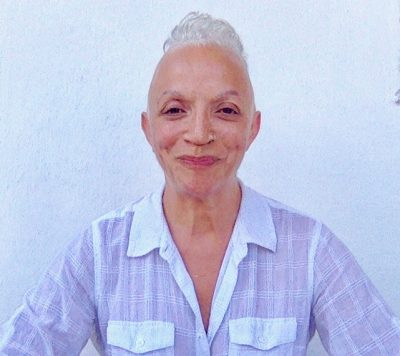
Doris Difarnecio created and directed theatrical pieces with FOMMA (Fortaleza de la Mujer Maya) from 1999 – 2013. She directed Centro Hemisférico, the satellite headquarters of New York’s Hemispheric Institute in San Cristóbal de las Casas, Chiapas, Mexico from 2007 – 2013. Drawing on her theatrical and interdisciplinary background, Doris developed Centro’s public programming and academic-artistic research so as to reflect the historical context of the city known for the Zapatista uprising. Focusing on art, politics, and performance through interdisciplinary collaborations, Doris utilizes theatre and performance as vital anchors in order to link distinct cultures and modes of expression around gender violence. The lectures, workshops, projections, public and political actions, performances, art exhibitions, and installations that Doris has realized across Latin America, Central America, India, Egypt, Spain, and Cuba have allowed for the blossoming of a collaborative, multilingual, and interdisciplinary consortium of institutions, artists, academics, and activists in Arte Acción, a platform she currently directs. With regards to her scholarly work, she is a CESMECA (Center of Social Research in Mexico and Central America) Master’s student. Her writing on the body and memory as decolonial methods of remembering, acting, and naming trauma has been published in Spain, Canada, Mexico and Cuba. Please visit: https://centrohemisferico.wordpress.com/ and https://arteaccionchiapasmexico.wordpress.com/.
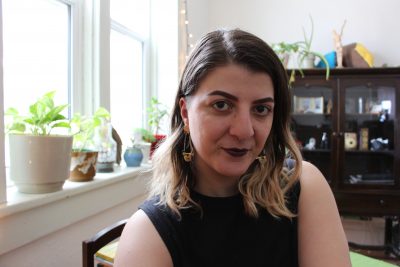
Christina Hajjar is a first-generation Lebanese-Canadian queer femme emerging artist, writer, and organizer based in Winnipeg, Manitoba, Treaty 1 Territory & Homeland of the Métis Nation. Through poetry, performance art, installation, and zines, Hajjar’s practice grapples with diaspora, queerness, intergenerational inheritance, food culture, and feminism. Hajjar is a 2017-2018 recipient of Cartae Open School at aceartinc. She does arts administration at Flux Gallery, Creative Manitoba, and Mentoring Artists for Women’s Art. A graduate from the University of Winnipeg, she holds undergraduate degrees in Women’s and Gender Studies and Business and Administration. Please visit: christinahajjar.com/.
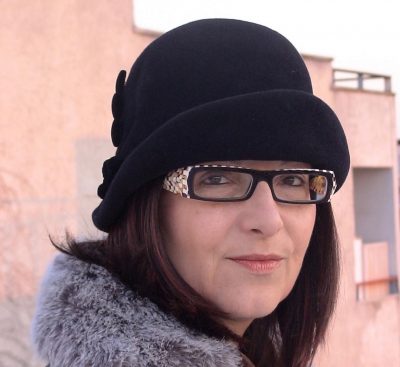
Smaro Kamboureli is the Avie Bennett Chair in Canadian Literature at the University of Toronto. Previously, she was Canada Research Chair Tier 1 in Critical Studies in Canadian Literature at the University of Guelph, where she founded and directed the TransCanada Institute. The collaborative research she pursued through TCI resulted in her co-edited volumes Trans.Can.Lit: Resituating the Study of Canadian Literature (with Roy Miki), Shifting the Ground of Canadian Literary Studies (with Robert Zacharias), Critical Collaborations: Indigeneity, Diaspora and Ecology in Canadian Literary Studies (with Christl Verduyn), Editing as Cultural Practice in Canada (with Dean Irvine), and Producing Canadian Literature: Authors Speak on the Literary Marketplace (with Kit Dobson). The author of On the Edge of Genre: The Contemporary Canadian Long Poem and Scandalous Bodies: Diasporic Literature in English Canada, she has also published many articles and chapters in books, as well as two editions of the anthology Making a Difference: Canadian Multicultural Literature. The founder and general editor of The Writer as Critic series (NeWest Press) and TransCanada Books (Wilfrid Laurier University Press), she is also the editor of Barbara Godard’s Canadian Literature at the Crossroads of Language and Culture and, more recently, Lee Maracle’s Memory Serves: Oratories. She is presently at work on a monograph called Liquid Kinship: Indigenous and Diasporic Studies in Canada.

Monica Mercedes Martinez is a process based/performative ceramic artist. She is fascinated by how the past continues to manipulate the power structures that rule our world today by using the bias of memory to subconsciously control our views on racial heritage, gender, cultural concepts of beauty, and the hierarchies of art. Martinez holds an MFA from the University of Manitoba. She has taught as a sessional lecturer at the University of Manitoba, as well as conducted workshops and artist talks. She has participated in both national and international artist residencies, and is a member of the art collective CONSTELACIONES.
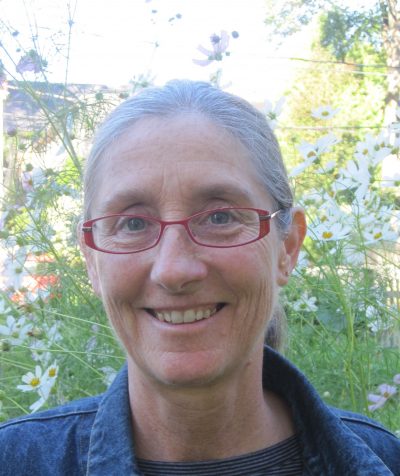
Cassie Scott is passionate about touch, gardens, activism and writing. She holds Masters Degrees in Counseling Psychology and Creative Inquiry and works as a Rosen Method Bodywork Practitioner, Horticultural Therapist, and urban gardener. She uses poetry to illuminate dark corners and thrives in collaborations that awaken new possibilities for living.
Diana Taylor is a University Professor and Professor of Performance Studies and Spanish at New York University. She the author of numerous award-winning books including: Theatre of Crisis: Drama and Politics in Latin America (1991); Disappearing Acts: Spectacles of Gender and Nationalism in Argentina’s “Dirty War” (1997); and The Archive and the Repertoire: Performing Cultural Memory in the Americas (2003). The Politics of Presence is forthcoming (2019) with Duke University Press in English, and with Ediciones Universidad Alberto Hurtado (Chile) in Spanish. Taylor was the recipient of the Guggenheim Fellowship in 2005, an ACLS Digital Innovation Fellowship in 2013-14, and a Research Fellowship at the Institut d’Etudes Avancée de Paris in 2016-2017. She was President of the Modern Language Association (MLA) in 2017. Diana Taylor is Founding Director of the Hemispheric Institute of Performance and Politics, which is funded by the Ford, Mellon, Rockefeller, Rockefeller Brothers, and Henry Luce Foundations.
Dot Tuer is a writer, curator, and Professor of Visual and Critical Studies at OCAD University. Her scholarly and creative work explores the intersection of cultural memory, decolonization, and visual storytelling in Latin American and Canadian art. She is the author of Mining the Media Archive (2005), and numerous museum catalogue, book anthology, and journal essay publications. In 2012-13, she was the guest curator of the retrospective exhibition of Mexican artists Frida Kahlo and Diego Rivera, Frida and Diego: Passion, Politics, and Painting, which was held at the Art Gallery of Ontario. Her current research centers on the politics of cultural memory and visual strategies of commemoration in the Americas. A selection of her writings is posted at https://ocad.academia.edu/DotTuer.
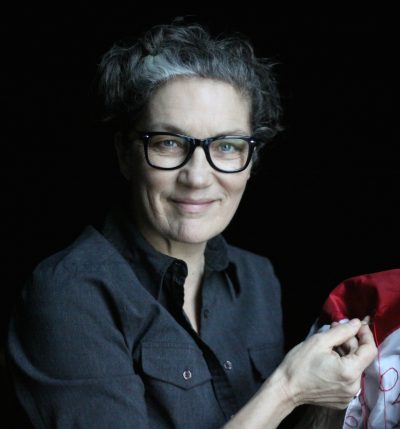
Helene Vosters is a queer artist-scholar-activist whose work focuses on issues of state violence, social memory, and the role of performance and aesthetic practices in mobilizing critical engagement. A self-taught multi-disciplinary artist—performance, craft, and relational arts—Helene’s practice utilizes a task-based labour aesthetic. Helene’s durational counter memorial meditations include Stitch-by-Stitch, Flag of Tears, Unravel, and Impact Afghanistan War. Helene has published articles in Canadian and international journals (Performance Research, Theatre Research in Canada, Canadian Journal of Practice-based Research in Theatre, and Canadian Theatre Review), and book sections in Performance Studies in Canada, Performing Objects and Theatrical Things and Theatre of Affect.